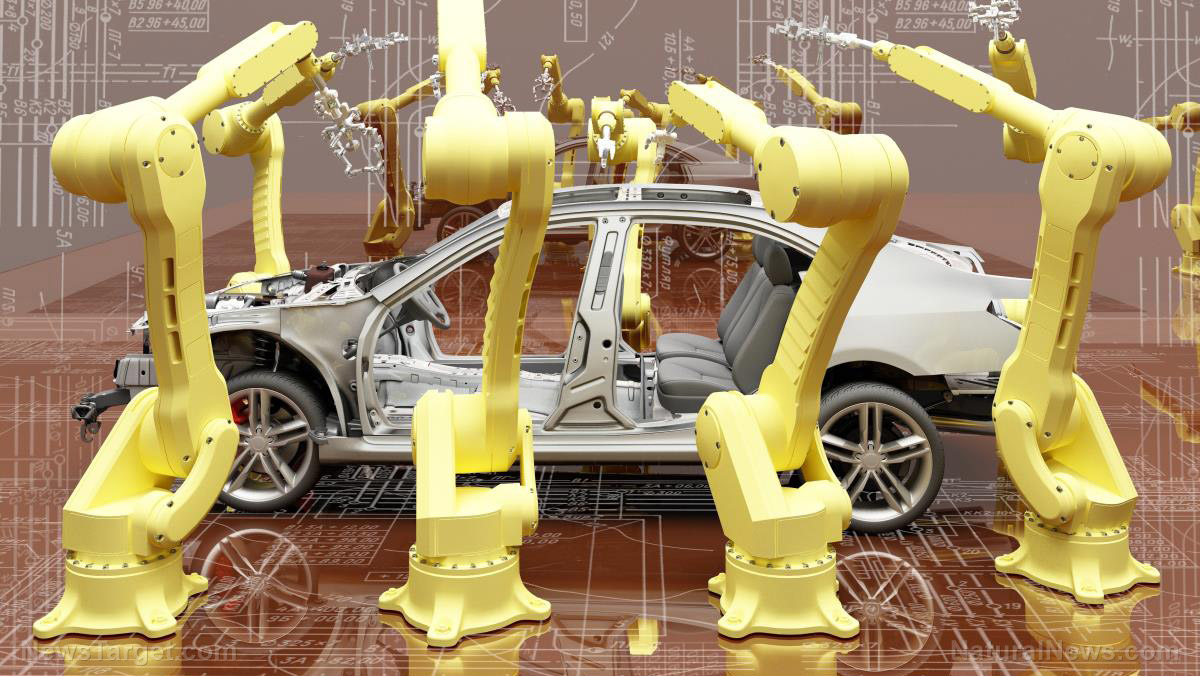Ford expects car production to SHRINK IN HALF during the second quarter due to semiconductor chip shortage
05/02/2021 / By Arsenio Toledo

The chief executive of the Ford Motor Company, one of America’s largest automakers, says he believes the company will lose half of its second-quarter production due to the ongoing semiconductor chip shortage.
During the company’s first-quarter earnings call on Wednesday, April 28, Ford CEO Jim Farley proudly announced that the company was able to beat Wall Street’s expectations regarding its earnings. But he couched this statement by saying that it now expects to lose around 50 percent of its planned second-quarter production.
Ford’s production for the first quarter already dipped by 17 percent due to a fire in the factory of Ford’s chip supplier, Renesas Electronics in Japan. (Related: Fire at Japanese chipmaker adds to collapsing microchip supply lines for automakers.)
“There are more whitewater moments ahead for us that we have to navigate,” Farley said to the company’s investors during the earnings call. “The semiconductor shortage and the impact to production will get worse before it gets better.”
Ford Chief Financial Officer John Lawler says the company expects to lose about 1.1 million units of production for the entirety of 2021 due to the semiconductor shortage. This is a significant increase from the previous forecast for lost output of between 200,000 to 400,000 vehicles.
In February, the company estimated it would earn between $8 billion to $9 billion in adjusted pretax profits. During the earnings call the company adjusted its estimates and it is now expecting between $5.5 billion and $6.5 billion in adjusted pretax profits. Ford stated that it fully expects to lose around $2.5 billion due to the semiconductor issue.
Adjusted free cash flow for the year is projected to be between $500 million to $1.5 billion.
Lawler explained that the company would have made less in profits if it did not offset the losses from reduced production. It did this by implementing cost reduction strategies such as reducing the incentives on vehicles sold, prioritizing the production of the company’s most profitable models and lowering manufacturing costs.
Multiple Ford factories shutting down due to semiconductor shortage
The impact of the semiconductor shortage can be felt in the company’s factories. The Ford Kansas City Assembly Plant, which manufactures its top-selling F-150 pickup trucks and Transit cargo vans, is in the middle of a shutdown. The company’s assembly plants in Chicago, Dearborn and Flat Rock as well as its truck plant in Louisville, Kentucky have also shut down.
“The second quarter will be the worst financial impact from the semiconductor shortage,” said David Whiston, an analyst with investment research firm Morningstar.
“In the first quarter they were able to put some band-aids on certain things and still make the vehicles, whereas in Q2 you really start to run out of options. You’re seeing a lot more plant closing announcements across the industry over the past few weeks.”
As the semiconductor shortage drags on, the toll it takes on automobile companies – and their workers – will increase. The shortage is already taking a number on Ford’s inventory of vehicles.
During the earnings call, Lawler said the company had about 44 days worth of supply of vehicles at the end of the first quarter. This is far below the regular 60-day supply that has become the standard for the automobile industry.
Most of the company’s earnings in the previous quarter came from North America, with earnings of $2.95 billion before interest and taxes. This is a $346 million increase from last year when the Wuhan coronavirus (COVID-19) devastated car sales and profits plunged.
The company is trying to turn around its overseas business. It lost a cumulative $5.8 billion in markets outside of North America over the past four years. It only earned $454 million in the first quarter, with the bulk of that coming from Europe.
Learn all about how the global semiconductor shortage is causing automobile companies like Ford to adjust their expectations and reduce production at MarketCrash.news.
Sources include:
Tagged Under: automobile industry, automobiles, cars, chip shortage, Collapse, computer chips, economics, economy, ford, manufacturing, market crash, microchips, risk, semiconductor shortage, semiconductors, supply lines
RECENT NEWS & ARTICLES
COPYRIGHT © 2017 MARKET CRASH NEWS

















